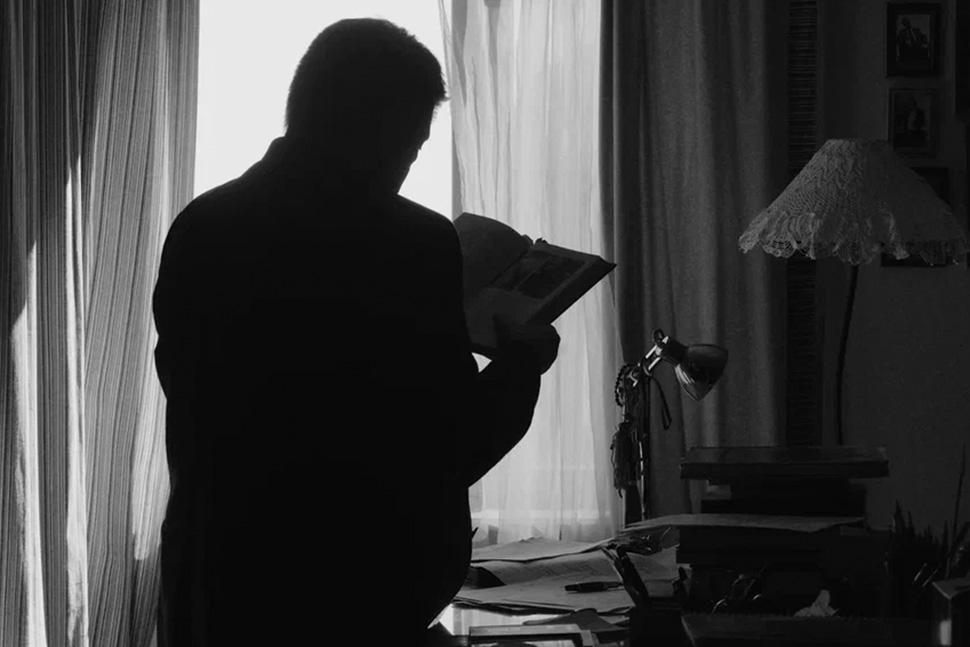





Dir: Aleksandr Sokurov | Italy, Russa, Doc. 305′
reviewed by David Mault
Aleksandr Sokurov has, it seems, become unfashionable, in the same way say Pasolini has. In the past he was a regular at the top tier Festivals, whether that was his earlier documentaries, his pastoral living paintings: Mother and Son & Father and Son, his tetralogy focusing on 20th century leadership (Moloch, Taurus and The Sun), his Golden Lion winning adaption of Goethe’s Faust or his coup de cinema: Russian Ark.
Lately he has not been productive; his last film played in Locarno in 2022 and has largely been unseen. With Director’s Diary (Zapisnaja knižka režisëra) he makes a return to the Lido for an Out Of Competition slot, where he will unfurl his 5 hour documentary that looks at the 20th century from the perspective of The Soviet Union, and his unique view point as a citizen of Russian and a non-outsider artist.
Not for him the cosy relationship with Vladimir Putin that so many Russian artists enjoy, one of course thinks of Oscar winning director Nikita Mikhalkov. In modern Russia he is revered and is a “People’s Artist of the Russian Federation”. On the other, he has been critical of Putin and was caught in a very public spat with the Russian president last December at a meeting of the country’s Human Rights Council where Putin reprimanded him directly for remarks Sokurov made about Russia’s “very complicated” foreign policy.
So recently he (maybe tongue in cheek) has defined himself as cultural Italian: “Maybe for my artistic roots, I am more an Italian filmmaker than a Russian one. This is because of the influence of the paintings, the cinema, the architecture – it is inside me,”
The title is slightly a misnomer, before watching the film I believed it would be diaristic in the manner of Jonas Mekas or David Pevlo. In fact what we are faced with is something as personal and singular as Godard’s JLG/JLG, Autoportrait de Décembre or Histoire(s) du cinéma; or perhaps Terence Davies’ Of Time And The City.
The days of the hegemony of the American Empire are coming to a close. We are seeing the dawning of a multipolar world led by the BRICs that ultimately will force a reappraisal of our current reality. One of course immediately makes the comparison to Gramsci’s statement: “The old world is dying, and the new world struggles to be born: now is the time of monsters.” We are in the sense of historical time and personal space that is very much a counter history. Counter and against the hegemon of the American Empire.
In between short scenes of Sokurov at his desk, a la Francophonia; as he mouths epigrammatic sentences and writes the year in question. Other than these sequences the film is comprised of archive footage of day-to-day Soviet life and geopolitical events. There is lots of text marking births and deaths of numerous cultural figures. I must say I was surprised/perturbed to see the birth of Luc Besson announced!
The time spans 34 years, from 1957 to 1991 and will, to a lot of Western audiences, be full of surprises of life in the Soviet Union outside what they have been told by their own leaders and media. One could, to use the parlour of our times, say the film is a cinematic Red Pill. Full of detail looking in detail towards the Soviet Union’s internationist anti imperialist history and its anti war beliefs.
We are looking at what progress looks like, the sacrifices it costs, both in human lives and material costs. There is a constant detail of deaths in airplane disasters, both in the West and The Soviet Union. There are reverberations that make you sit up with a jolt: Independent Ukraine declaring neutrality for example. Sokurov sees himself not only as filmmaker but a historian, using this project to suggest that present day crises stem from events chronicled across these decades and perhaps even further back.
These is no simplistic answer to where we find ourselves in the present moment. In fact, via the use of montage and available documentation, what we witness and experience is a visual ‘aide memoire’ via hegelian dialectic. At the end of five hours will are left not with a full stop at 1991 but rather a two line eulogy :“happy are our loved ones, who have died before us…” and parentheses. So hopefully we will return at some point.
In total the film is so very subtle, maybe too subtle in fact for Western audiences, but that is of course to damn it with a compliment that many others should take into account when documenting such massive subjects. @D_ W_ Mault
VENICE INTERNATIONAL FILM FESTIVAL | OUT OF COMPETITION 2025